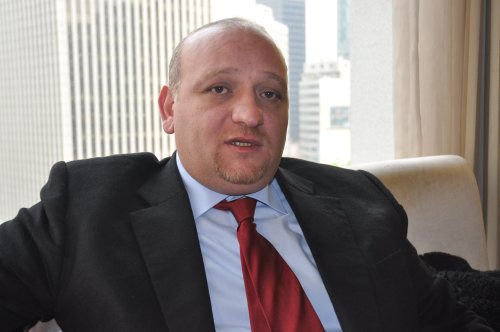The small embassy that had been located at Lotte Hotel since October 2010 has since moved to the Twin Tree Towers building in Junghak-dong, Jongno-gu.
While things are moving well for the embassy in Seoul, the demonstrations in the Middle East and North Africa driven by domestic concerns are creating a new regional paradigm.
Demonstrations erupted in Jordan in January in protest against the rising living costs, demanding economic and political reforms.
Jordan had previously implemented significant economic reforms, such as opening the trade regime, privatizing state-owned companies, and eliminating most fuel subsidies, which encouraged economic growth in the past few years by attracting foreign investment and creating jobs. However, that was not enough to halt the wave of protests in the kingdom.
Jordan’s King Abdullah sacked the Cabinet of Samir Rifai on Feb. 1 and named Maaruf Bakhit to head a Cabinet tasked with introducing general reforms.
“The nature of the protests in Jordan was directed toward the economy and corruption, which need to be dealt with firmly and in a transparent manner, so that’s what the new government has committed itself,” said Nahar to The Korea Herald.
As the nation’s largest employer, the Jordanian government wants to expand the economy while keeping its existing share.
Nahar said the protests in Jordan were different from those in the rest of the Arab world, but that there was no special remedy or magic wand that could transform the country from an aid recipient country to an OECD economy overnight.
This is where the ambassador is hoping to play an important role.
“We have huge plans to develop our economy with a special focus on education and technology,” he said.
To attract investments from Korea, Nahar explained that Jordan offers a one-stop location for Korean products.
“They can travel to the region from Aqaba via the Red Sea, which is ideal because they don’t have to go past Somalia,” he said. “We have a very good road network and we are working on a nationwide railway system that Korean companies can take part in building.”
The focus of the embassy in Seoul is to attract more foreign direct investment.
At the center of Jordan’s challenges is a colossal fuel bill. Since early 2003, the country has imported oil primarily from Saudi Arabia at concessionary and market prices.
In 2007, Jordan imported 96 percent of its energy for a total of around $3.2 billion. “For a country like Jordan, this is an alarming figure. It translates to almost 24 percent of our imports and 20 percent of our GDP,” he said.
With its energy demands going up and forecast to hit 4,700 megawatts by 2020, “the time to act is now.”
“We are still looking at various viable renewable energy sources including wind, solar and thermal as alternatives,” Nahar said. “We are shifting toward nuclear technology as an important and viable medium-to-long-term option.”
In 2009, a Korean consortium won a $173 million bid to build Jordan’s first small-scale nuclear research reactor. This was Korea’s first export of a locally-designed nuclear plant. The project helped Korea break into other markets such as the United Arab Emerites.
Jordan has oil shale but the high cost of processing means that exploiting it will not be viable in the near future.
“What’s happening now is that we are trying to make do with what we have but I’m very optimistic about our future because sooner or later we will have left our mark in the region.”
Another positive development for Jordan’s future is its uranium reserves that are just waiting to be tapped.
Nahar is also looking to promote Jordan’s tourism industry.
In 2009, Jordan attracted 3.5 million visitors from all over the world, with tourist receipts amounting to about $3 billion.
Its major tourist attractions include the world famous Petra, numerous medieval mosques and churches, as well as religious pilgrimage sites.
Jordan also offers health tourism focused in the Dead Sea area, education tourism and scuba diving in Aqaba’s coral reefs.
To make Jordan into a hub for travelers, a new terminal at Queen Alia International Airport is to be built. The airport is expected to be completed by the end of this year or early next year and will accommodate 9 million travelers compared to the more than 3 million visitors it handles today.
By Yoav Cerralbo (
yoav@heraldcorp.com)







![[Lee Byung-jong] The perils of political leadership](http://res.heraldm.com/phpwas/restmb_idxmake.php?idx=644&simg=/content/image/2024/12/19/20241219050082_0.jpg)
